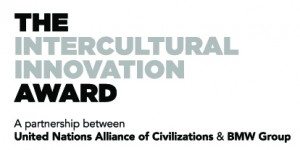Over the weekend we saw the celebration of women all around the world with International Women’s Day. It is an acknowledgement of achievement of women everywhere, striving for female empowerment in both public and private sectors of their lives.
However, within this unified agenda that focuses on the advancement of women, we must recognise that a subtle embedded inequality exists.
In the fight for gender equality, deeply rooted internal divisions based on race and ethnicity obstruct women from ethnic and cultural minority backgrounds from achieving the same equal opportunities that fellow ‘racially privileged’ women seek. These women face the dual disadvantage of being subject to multiple intersecting and overlapping systems of oppression that are associated with both race and gender.
Studies show that women who live in such intersected spaces are largely under-represented in the organisational and legal contexts of Australia, and as such their access to these systems is qualitatively different to that of the access received by women of white Anglo-Celtic background.
In particular, first generation Australian women from an ethnic minority background not only have to combat the power struggle involved in the gender equality movement, but further face a number of structural and systematic barriers that their ‘mainstream’ counterparts are not subjected to; such as:
- ill-conceived perceptions of their education and experience,
- grasp of English and
- cultural traditions
In the event of taking action against workplace discrimination, these women are required to be re-interpreted on the grounds of their sex or race, rather than the intersection of both. Australian law in itself has proven to be problematic in accommodating these intersected identities of women of ethnic minority, treating gender and race as mutually exclusive. An excellent example is Australia’s anti-discrimination laws, such as the Sex Discrimination Act and the Race Discrimination Act, in which women of ethnic minority fall through the cracks of definition, and when they are defined, it is only relative to Western standards.
In light of International Women’s Day, we must come together to understand and recognise the importance of providing all women a right to equal expression and definition across all platforms (whether it be social, political, economic or organisational and legal) in the fight for gender equality.
Keeping in line with this year’s theme of “Inspiring Change”, let’s empower women to bring about structural, institutional and cultural changes that provide all women with an environment free from discrimination.


